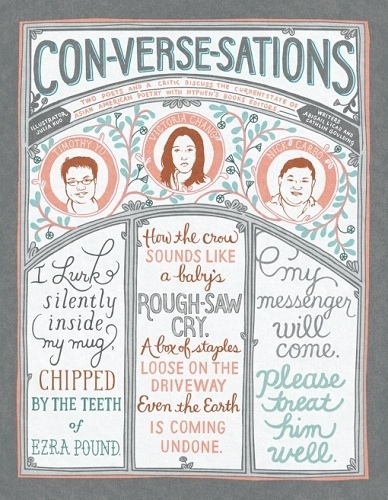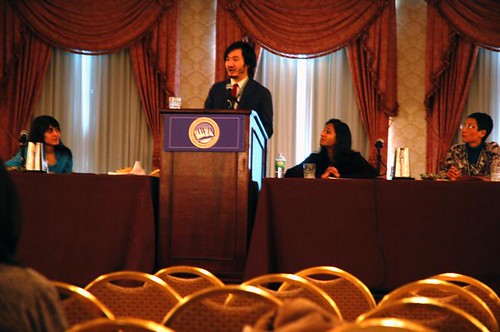In his review of Bao Phi’s book, which we posted yesterday, guest contributor Greg Choy made some particularly intriguing observations about shifting trends in Asian American poetry, especially with regards to its relationship with community-based activism. The discussion about how best to engage with politics (and specifically, about whether to engage with identitarian politics) in our work is broad and ongoing, and in light of that, I thought I would follow up on Prof. Choy’s thoughts by pointing you towards a few insightful write-ups that provide additional perspectives on the matter.
* * *

1. “CON-VERSE-SATIONS”
(Hyphen Magazine Roundtable with Timothy Yu, Victoria Chang, and Nick Carbo)
I appreciate the thoughtful dialogue to be had in this article with regard to Asian American poetry’s stylistic diversity, its audiences, its status both inside and outside of academia, and its current relationship to its activist roots. In particular, I think Tim Yu makes a spot-on observation that while, in the wave that immediately followed the 70’s, poets were more interested in the confessional mode than in political rhetoric, poets are now coming back towards the political, some through the overt expression of activist “creeds,” as is true in the spoken word scene, and others more quietly, by infusing their approaches to craft and subject matter with strong political undertones (Yu points to Ken Chen as an example of one such poet). “We’ve had two decades of Li-Young Lee and Marilyn Chin and these writers who really risk prominence writing about their own personal experience,” he says, but “that’s not where we are anymore.” His claim is exemplified by the list of recommended titles the editors provide at the end of the article: from Cathy Park Hong to Barbara Jane Reyes to Ronaldo V. Wilson, the body of contemporary Asian American poets who are again engaging with the political (particularly through experimental forms) is strong, and seems to be growing.
Continue reading “Editors’ Picks: Further Reading on the State of Asian American Poetry”


